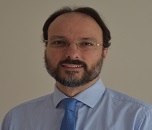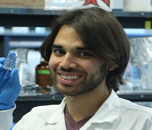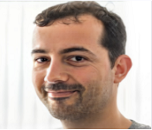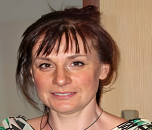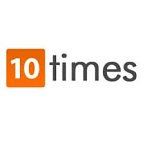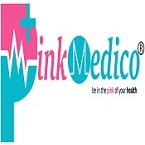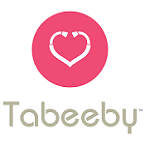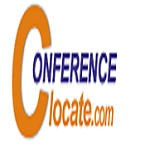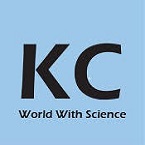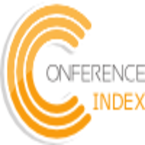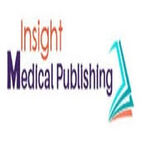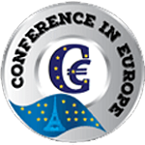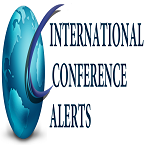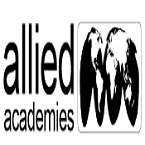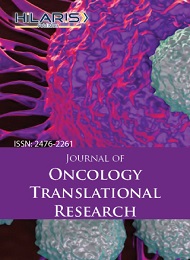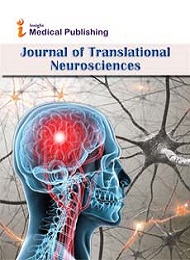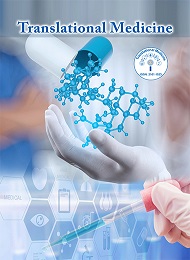Theme: CME/ CPD Credits Available Translational Medicine-Sharing a new Aspect to improvise worldwide health {30% Discount}
translationalmedicine2023
- Welcome Message
- About Conference
- Session/Tracks
- Market Analysis
- Associations & Societies
- Visa Trip Advisor
- Top Companies
Connect with leading researchers in your field from around the world by joining the 7th International Conference on Translational Medicine and Bioengineering which going to be held on October 10-11, 2023 in Madrid, Spain. The main goal of Translational Medicine Conference 2023 is to combine disciplines, resources, expertise, and techniques within these pillars to promote enhancements in prevention, diagnosis, and therapies.
Translational Medicine unequivocally respects all of the individuals over the globe from driving colleges, research foundations, expressive associations and all interested to allocate their assessment experiences in 7th International Conference on Translational Medicine and Bioengineering on October 10-11, 2023 in Madrid, Spain.
7th International Conference on Translational Medicine and Bioengineering Committee would like to invite speakers to submit their research for inclusion in the Translational- Medicine 2023 scientific program.
Abstract Submission Details
We warmly invite you to submit your abstract and attend the 7th International Conference on Translational Medicine and Bioengineering.
Submit your abstract online at Speaker abstract (or) Email to: translationalmedicine@meetingsemail.com
Translational Medicine 2023 Highlights includes:
- CPD Credits
- IOCM Certification
- One on One Meeting with Eminent Speakers from 40 Countries
- Live Streaming of the conference
- Keynote sessions by the world’s most eminent researchers
- Top Industries Representation
- Thought-provoking Symposia and Workshops
- Preconference workshops in all major countries
- Nominations for Best Poster Award
- Outstanding Young Researcher Award
- Group Registration benefits
Target Audience:
- Molecular Biologists
- Scientists in Industry and Academia
- Postgraduates and Postdocs
- Scientists
- Public Health Professionals
- Pharma Vaccines and Biotech Industry
- Regulatory Agencies
- Policy Makers and Government Officials
- Clinical Practitioners
- Preclinical Researcher Molecular Biologists
Following are the statistics percentage-wise:
|
Physicians |
35% |
|
Researchers |
30% |
|
Academia |
30% |
|
Others |
5% |
Why to Attend?
7th International Conference on Translational Medicine and Bio Engineering may be a distinctive platform that aims to debate and generate new ideas for treatment and management of Medicine will witness an assembly of consultants from everywhere the globe who will present their cutting-edge Research for the betterment of Translational Medicine and Bio Engineering.
Other Reasons:
• Gathering of best Researchers and budding talent from across the world.
• Showcase your analysis and find world Recognition.
• Avail possibilities to move with world-Renowned Scientists.
• Perfectly designed schedule Workshop, Expo areas, brainstorming sessions and lots of Platform to network with fellow medical care clinicians.
Track 01: Translational Medicine
Translational medicine, also called translational life science, preclinical research, evidence-based research, or disease-targeted research, area of research that aims to enhance human health and longevity by determining the relevance to human disease of novel discoveries within the biological sciences. Translational medicine seeks to coordinate the utilization of the latest knowledge in clinical practice and to include clinical observations and questions into scientific hypotheses within the laboratory.
- Human Diseases
- Nutria Genomics
- Bio Informatics
- Biotechnology
- Chronic Disease
Track 02: Biomarkers in Translational Medicine
The field of biomarker discovery has exhibited an excellent surge of interest in recent years. Biomarkers are often used for several purposes including diagnosis, prognosis and selecting appropriate patient therapy, and should provide information on disease mechanism or progression. Translation of such markers to clinical testing encompasses phases for his or her discovery and characterization, assay development, and eventually implementation using automated platforms employed in clinical laboratories.
- Biological Marker
- Quantifiable Medical Signs
- Clinical State
- Epidemiological
- Pathophysiological
​Track 03: Role of Translational Research in Blood Disorder
Translational research has many various potential definitions. There are two broad elements: one is research that is a bridge between basic science and therefore the development of therapeutic intervention; the second also referred to as knowledge translation explores why a clinically established product isn't used more widely and/or further characterizes its optimal use. The primary Translational Research element has always been an integral part of transfusion medicine; it's previously been mentioned as applied research or development.
- Therapeutic Intervention
- Knowledge Translation
- Transfusion Medicine
- Novel Therapy
- Applied Research
- Molecular Biology
Track 04: Translational Cardiology and Vascular Medicine
This programme aims to develop the interest in translational cardiovascular research and medicine and equip with enhanced knowledge, understanding and critical awareness of the current approaches and emerging research in this area.
- Cardiovascular Research and Medicine
- Acute coronary syndrome
- Hypertension
- Cardiac arrest
- Electrocardiography
- Cardiometabolic Health- Diabetes, Obesity & Metabolism
- Cardiovascular Pharmacology and Toxicology
Track 05: Translational Therapeutics and Technologies
Advances in knowledge of the molecular alterations of human cancers, refinements in technologies for the generation of genetically engineered mouse models (GEMMs), and therefore the development of cancer therapies have accelerated in recent years. Progress in these fields inspires clinically relevant studies to be performed in GEMMs, through which it's possible to glean information on drug efficacy and to spot determinants of sensitivity and resistance to drugs and drug combinations.
- High-Resolution Microscopy
- Mass Spectroscopy
- Cell-Based Assays
- Genomics
- Metabolomics
- Proteomics
Track 06: Clinical Epidemiology
Clinical epidemiology is that the study of the patterns, causes, and effects of health and disease in patient populations and therefore the relationships between exposures or treatments and health outcomes. Areas of research include disease screening and prevention, systematic review methodology, comparative effectiveness research, developing evidence-based practice and policy guidelines, implementation of practices and guidelines in health systems, development of patient-centred registries and data marts within health information systems, creating and testing patient decision aids, and using patient data for quality improvement and research projects.
- Evidence-based Medicine
- Systematic Reviews
- Meta-Analysis
- Screening and Prevention
- Clinical practice Guidance
Track 07: Translational of Animal Models to the Clinic
Despite large investments in drug development, the general success rate of medicine during clinical development remains low. One prominent explanation is flawed preclinical research, during which the utilization and outcome of animal models are pivotal to bridge the translational gap to the clinic. Therefore, the choice of a validated and predictive animal model is important to deal with the clinical question. the present challenges and limitations of animal models are discussed, with attention on the fit-for-purpose validation.
- Alzheimer disease
- Neurodegeneration
- Stroke
- Schizophrenia
- Addiction
- Pain
Track 08: Clinical and Translational Oncology
Clinical and Translational Oncology is a world journal dedicated to fostering interaction between experimental and clinical oncology. It covers all aspects of research on cancer, from the more basic discoveries handling both cell and biology of tumour cells, to the foremost advanced clinical assays of conventional and new drugs. Additionally, the journal features a strong commitment to facilitating the transfer of data from the essential laboratory to the clinical practice, with the publication of educational series dedicated to closing the gap between molecular and clinical oncologists.
- Aetiology
- Pathophysiology
- Pathology
- Epidemiology
- Genome-scale Studies
- Tumor genesis
Track 09: Immunology and Infectious Diseases
Immunology and communicable diseases are that the study of how the body copes with bacterial, viral, or parasitic infections, cancer, autoimmune disorder and other diseases of the system. The system protects us from infection through maybe a complex network of cells and tissues designed to fight invading pathogens. Immunology is the study of the response of the system to bacterial, viral or parasitic infections. It's also the study of diseases caused by disorders of the system. Autoimmune diseases are diseases that cause your system to attack your own body.
- Cancer Immunology
- Computational Immunology
- Epidemiology
- Immune System Disorders
- Prevention
- Testicular Immunology
- Viral Immunology
Track 10: Advances in Translational Medicine Research
Advances in Translational Medicine Research is encouraging researchers from the rapidly growing discipline in biomedical research and aims to expedite the discovery of new diagnostic tools and treatments by using a multi-disciplinary, highly collaborative; bench-to-bedside approach.
- New discoveries in genetics
- Cell biology
- Hematology
- Immunology
- Infectiology
- Hematopoietic
- Cell Transplantation
- Cellular and Gene Therapy
Track 11: Bioengineering and Biomedical Engineering
Biomedical engineering is a more specialized version of bioengineering, utilizing many of the discipline’s principal theories and putting them to practice to improve human health. The field is focused on the production of new tools and processes that can be used in various health care contexts. Biomedical engineers commonly work to solve issues that are present in the life sciences. That work on prosthetics or the emerging field of cybernetics is also referred to as biomechanical engineers. Items like the pacemaker, artificial heart and cochlear implant are all results of biomedical innovation.
- Prosthetics
- Laser Surgery
- Pacemakers
- Magnetic Resonance.
- Lab-on-a-Chip
- Radiation Therapy
Track 12: Bioelectrical and Neural Engineering
Neuro Engineering and Bioelectricity involves the study of excitable cells and tissues, and how the electrical properties of these cells and tissues affect physiologic function and diseases. Neuro engineering and Bioelectricity research involve a good range of experimental, computational, and quantitative research focused on clinically-relevant health conditions and diseases. Currently, Neuro engineering and Bioelectricity includes a diverse range of applications including neuroplasticity, computational modelling, and cardiac electrophysiology.
- Computational Neuroscience
- Cybernetics
- Neural Tissue Engineering
- Neuro Prosthetics
- Neural Implants
Track 13: Biomedical Robotics and Mechanics
The Biomedical Robotics Research focus area is centred on the planning, development, and evaluation of medical robotics systems and smart assistive robotic platforms that enhance the physical capabilities of both patients and clinicians via advancements in mechanical design, modelling and control, sensors and instrumentation, computing, and image processing. Core Research in this area includes medical robotics, haptic interfaces, machine learning, soft robotics, robot-assisted surgery and rehabilitation, tissue modelling, human augmentation, biomechanics, and human-robot interaction.
- Medical Robotics
- Haptic Interfaces
- Robot-Assisted Surgery and Rehabilitation
- Tissue Modeling
- Human Augmentation
- Biomechanics
- Human-Robot Interaction
Track 14: Bio-Medical Signal processing
Our bodies are constantly communicating information about our health. This information is often captured through physiological instruments that measure pulse, vital signs, oxygen saturation level, blood sugar, nerve conduction and brain activity. Such measurements are taken at specific points of your time and noted on a patient’s chart. Physicians see but one-hundredth of those values as they create their rounds and treatment decisions are made based upon these isolated readings.
- Statistical Process
- Pattern Recognition
- Filter Theory
- Neurophysiology
- Probabilistic Modelling
Track 15: Biometric And Bio Measurement
Nowadays wearable devices are developed for effectively measuring biological data. These devices have tissue allege and noise problems. To unravel these problems, biometric measurement supported a non-contact method, like face image sequencing is developed. Which makes it possible to live biometric data with no operation and side effects. However, a foreign centre can't spot the person whose data are measured by novel methods.
- Partial pressure suit
- Counter pressure
- Circulatory physiology
- Numerical model
- Iris Recognition
- Facial Recognition System
Track 16: Biomaterial and Biomedical Optics
Biophotonics is the subject that deals with the study of optical procedures in biological systems, composed of those which occur naturally and in bioengineered materials. Biomedical optics accents on the planning and application of advanced optical techniques to resolve problems in medicine and biology
- Biocompatible Optical Materials
- Biodegradable Waveguides
- Elastic Waveguides
- Biophotonic Waveguides
- Phototherapy
- Optogenetic
Track 17: Computational Biology and Bioinformatics
Computational biology and bioinformatics is an interdisciplinary field that develops and applies computational methods to large collections of biological data, like genetic sequences, cell populations or protein samples, to make new predictions or discover new biology. The computational methods used include analytical methods, mathematical modelling and simulation.
- Molecular medicine
- Personalized medicine
- Antibiotic resistance
Track 18: Computational Proteomics
Computational Proteomics is the computational methods, algorithms, databases and methodologies used to process, manage, analyze and interpret the data produced in a proteomics experiments. The broad application of proteomics in several biological and medical fields, is because of the diffusion of the high-throughput platforms, resulting in the increasing volume of obtainable proteomics data requiring efficient algorithms, new data management capabilities and novel analysis, inference and visualization techniques.
- Data Analysis
- Mass Spectrometry
- Post Translational Modifications
- Multiomics Data Analysis
- Multivariate Analysis
- Network Analysis
Track 19: Cancer Genomics and Epigenomics
Epigenetics is defined as heritable changes in gene activity that occurs without alterations in the DNA sequence. The “Cancer Genomics and Epigenomes” have been widely investigated for their involvement in cancer to understand the basic processes of different malignancies. The aggregation of genetic and epigenetic alteration also displays a wide range of heterogeneity making it necessary to develop personalized treatment strategies.
- Genome plasticity
- Genetics and genomics
- Epigenetics
- Chromatin
- Transcription
- Histone-modifications
Track 20: Translational Bioinformatics
Translational bioinformatics is an emerging field in the study of health informatics focused on the convergence of molecular bioinformatics, biostatistics, statistical genetics and clinical informatics. Its focuses on applying informatics methodology to the increasing amount of biomedical and genomic data to formulate knowledge and medical tools, which can be utilized by scientists, clinicians, and patients. It applies biomedical research to improve human health through the use of a computer-based information system
- Toxin Databases
- Bioinformatics
- Healthcare Informatics
- Data Mining
- Electronic Health Records
Track 21: Stem Cells and Regenerative Medicine
Stem cells are the body's raw materials, cells from which all other cells with specialized functions are generated. Under the right conditions in the body or a laboratory, stem cells divide to form more cells called daughter cells.
Regenerative medicine is the area of medicine that develops methods to regrow, repair or replace damaged or diseased cells, organs or tissues. Regenerative medicine includes the generation and use of therapeutic stem cells, tissue engineering and the production of artificial organs.
Track 22: Integrative Medicine
Integrative medication will facilitate people with cancer, persistent pain, chronic fatigue, fibromyalgia and plenty of alternative conditions higher manage their symptoms and improve their quality of life by reducing exhaustion, anxiety and pain. Integrative medication that focuses on caring for the total human being like body, mind, spirit, and community not simply flesh, bones, and organs—is steady changing into a fascinating and logical possibility for several people.
- Music therapy
- Aromatherapy
- Acupuncture
- Animal-assisted therapy
- Dietary supplements
- Massage therapy
- Meditation
Track 23: Complementary Medicine and Alternative Medicine {CAM}
However in spite of the inescapability, power, and guarantee of contemporary therapeutic science, huge portions of humankind either can't get to its advantages or decide not to do as such. In excess of 80 percent of individuals in creating countries can scarcely manage the cost of the most essential medicinal strategies, medications, and antibodies. In the modern countries, a shockingly vast extent of individuals pick practices and items for which evidence as to their wellbeing and adequacy is humble, best case scenario, rehearses that in the total are known as correlative and elective prescription (CAM) or as conventional drug (TM).
The utilization of integral and elective drug (CAM) is expanding quickly. The World Wellbeing Association (WHO) arranges 65– 80% of the world's social insurance benefits as Elective Medication 'In this way, from the perspective of the populace proportion, a greater number of individuals utilize CAM than present day western prescription. Integral Prescription Today is "a various gathering of medicines, running from symptomatic intercessions to be utilized related to conventional treatments, contemplation to different medications to be utilized other than the medical procedures and chemotherapy systems. Corresponding drug courses respond to the call to conquer sick wellbeing and distinctive customary treatments.
National Place for Correlative and Elective Medication National Organizations of Wellbeing Elective Prescription (NCCAM) is committed to investigating reciprocal and elective mending rehearses with regards to Assignments History ($ in thousands)
Complementary and alternative drug in Different Sclerosis, had as of late issued proposals as to correlative and elective drug (CAM). Her past medicinal history incorporates MS and regular hypersensitivities.
Back rub Treatment: A Presentation Back rub treatment has a long history in societies around treatment is regularly viewed as a feature of correlative and elective drug (CAM), in spite of the fact that it has some traditional employments. This reality sheet gives a general diagram of restorative history
The total U.S. market size for the Translation & Interpretation Services industry: statistics cover all companies, both public and private. In addition to total revenue, the industry research provides details on employees, companies, and average firm size in the sector. Use this market information to research and analyze growth rates and the Translation & Interpretation Services industry trends and market outlook based on quantitative research and economic data.
In 2014, the federal government spent a total of $374,294,818 on Translation & Interpretation Services. It has awarded 22,716 contracts to 372 companies, with an average value of $1,006,169 per company.
- European Society for Translational Medicine
- International Society for Translational Medicine
- International Society of Chemotherapy for Infection and Cancer
- American Cancer Society
- The British Society for Antimicrobial Chemotheraphy
- European Society of Clinical Microbiology and Infectious Diseases
- American Society of Clinical Oncology
- African Society of Chemotheraphy
- Federation of the European Societies of Chemotherapy and Infection
- Oncology Nursing Society
- Oral Chemotheraphy Management- Florida Society of Health
- American Society of Clinical Oncology
- International Oncology Societies –ESMO
- Society of Urologic Oncology
- Society for intregative Oncology.
- European Society of Gynaecological Oncology
- Pediatric Radiation Oncology Society
-
American Society for Radiation Oncology
Planning a trip to Madrid, Spain?? Attend our Meeting!!!
Issue with VISA??
To support the participants in his/her VISA application process, we issue each participant with VISA support documents. The documents are as follows,
- The official letter of INVITATION
- The official letter of the abstract acceptance
- The receipt of the payment
Points to be noted:
- Visa Letter (the official letter of invitation) will be issued only after you have successfully registered and paid for your conference
- Visa Letters can be issued only for the person accepted to attend the conference.
Please contact the Program Manager, Ms. Olivia Smith via translationalmedicine@meetingsemail.com to arrange for a Visa Letter.
Kindly provide us with the following to provide you with VISA LETTERS
- Your name as appears on your passport
- Your Passport Scan Copy
- And Abstract Acceptance letter for Presenters
One can make the payment through the following Payment Methods:
- Payment Gateway/Stripe
- Bank to Bank transfer
Having trouble in registration?
Please contact Ms. Olivia Smith via translationalmedicine@meetingsemail.comThe team of Translational medicine 2023 will provide you the INVOICE for the requested price with which he/she can make the Bank-to-Bank transfer.
- Roche
- Novartis
- Celgene
- Astrazenca
- Merck &Co.
- Pfizer
- Astellas
- Bayer
- Sanofi
- Eisai
- Pharmacyclis
- Incyte
- Markansan Pharma Ltd
- MedIndia-Network for Health
- Sanofi-Aventis
- Eli Lilly & Company
- Schering-Plough
- Leerink Swann
- SHC & Associates
- DuPont Merck Pharmaceutical Company
- Strativa Pharmaceuticals
- Spectrum Pharmaceuticals
- AbbVie
Conference Highlights
- Translational Medicine
- Biomarkers in Translational Medicine
- Role of Translational Research in Blood Disorder
- Translational Cardiology and Vascular Medicine
- Translational Therapeutics and Technologies
- Clinical Epidemiology
- Translational of Animal Models to the Clinic
- Clinical and Translational Oncology
- Immunology and Infectious Diseases
- Advances in Translational Medicine Research
- Bioengineering and Biomedical Engineering
- Bioelectrical and Neural Engineering
- Biomedical Robotics and Mechanics
- Bio-Medical Signal processing
- Biometric And Bio Measurement
- Biomaterial and Biomedical Optics
- Computational Biology and Bioinformatics
- Computational Proteomics
- Cancer Genomics and Epigenomics
- Translational Bioinformatics
- Stem Cells and Regenerative Medicine
- Integrative Medicine
- Complementary Medicine and Alternative Medicine {CAM}
- Physical Medicine and Rehabilitation
- Translational Pediatrics
- Nutrition in Cancer Therapy
- oncology and phase 1 clinical trials
To share your views and research, please click here to register for the Conference.
To Collaborate Scientific Professionals around the World
| Conference Date | October 10-11, 2023 | ||
| Sponsors & Exhibitors |
|
||
| Speaker Opportunity Closed | Day 1 | Day 2 | |
| Poster Opportunity Closed | Click Here to View | ||
Useful Links
Special Issues
All accepted abstracts will be published in respective Our International Journals.
- Translational Medicine
- Journal of Oncology Translational Research
- Journal of Translational Neurosciences
Abstracts will be provided with Digital Object Identifier by












